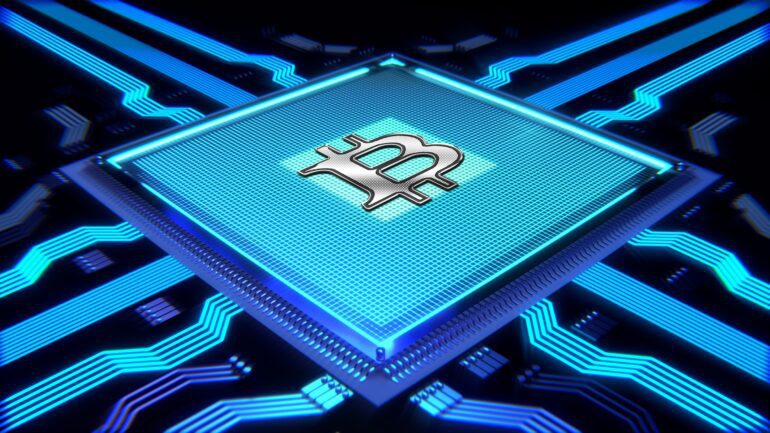TL;DR:
- BlockGPT, a Web3 company, has launched an AI service and blockchain ecosystem called “chat to earn.”
- It aims to create a decentralized, token-governed chatbot similar to OpenAI’s ChatGPT.
- Two tokens, BGPT (governance token) and AIBGPT (meme token) are built on PancakeSwap for trading.
- Users can earn NFTs and token prizes by engaging in chat sessions with the AI model.
- BlockGPT employs over six GPT models trained on a proprietary dataset for blockchain-related queries.
- The white paper emphasizes on-chain AI inference and the use of the Synapse engine for DApps and smart contracts.
- BlockGPT’s launch coincides with the popularity of memecoins and intense competition in the AI and token spaces.
Main AI News:
BlockGPT, a cutting-edge Web3 enterprise, has unveiled its latest innovation in the form of an “earn-as-you-chat” artificial intelligence (AI) service complemented by a blockchain ecosystem. This groundbreaking development was officially announced on May 11, marking an important milestone for BlockGPT. The company’s vision is centered around the establishment of a decentralized chatbot governed by tokens, which mirrors the capabilities of OpenAI’s renowned ChatGPT.
Coinciding with the AI model’s debut, BlockGPT is introducing two distinct tokens: a governance token named BGPT and a meme token called AIBGPT. These tokens, ingeniously built upon PancakeSwap, a decentralized exchange facilitating BEP-20 token trading, are set to provide users with exciting opportunities for engagement.
In a bid to enhance user participation and incentivize active involvement, BlockGPT has implemented a captivating “chat-to-earn” rewards system. This ingenious mechanism enables users to accumulate nonfungible tokens (NFTs) and token-based prizes by engaging in stimulating chat sessions with the AI model. By embracing this immersive and interactive approach, BlockGPT aims to foster a vibrant community and forge stronger connections between users and the technology.
A comprehensive white paper, available on the official BlockGPT website, sheds light on the company’s operational framework. The document reveals that BlockGPT leverages over six generative pre-trained transformers (GPT) models skillfully deployed on their platform. These models have undergone rigorous training utilizing an exclusive dataset meticulously crafted by the company.
While the paper refrains from disclosing specific details regarding the corpus size or the number of parameters employed in training the model, it emphatically asserts that BlockGPT was purposefully designed to tackle complex queries related to blockchain technology. The AI model’s proficiency in comprehending and providing comprehensive answers pertaining to the intricacies of blockchain stems from its extensive exposure to a vast array of blockchain-related information, resources, and research papers.
Moreover, the white paper highlights BlockGPT’s commitment to facilitating on-chain AI inference through its revolutionary AI Inference Engine. Developers are empowered to harness the potential of this cutting-edge technology by leveraging the Synapse engine, a robust framework for constructing decentralized applications (DApps) and smart contracts that seamlessly integrate with AI capabilities.
The emergence of BlockGPT arrives amidst a flurry of activity within the realms of AI and tokenization. Memecoins, including prominent examples such as Dogecoin and Pepe (PEPE), have recently garnered significant attention. Furthermore, the ongoing competition between OpenAI’s ChatGPT, Google’s Bard, and numerous other chatbot offerings has fueled intense discussions and captivated the technology sphere for months on end.
With its revolutionary “chat to earn” AI service bolstered by an innovative blockchain ecosystem and token governance, BlockGPT stands at the forefront of this dynamic landscape, poised to revolutionize the way we interact with AI and blockchain technology. As the company paves the way for a new era of user engagement, the possibilities for transformative applications and advancements in the field are boundless.
Conlcusion:
The launch of BlockGPT’s “chat to earn” AI service and blockchain ecosystem signifies a significant development in the market. This innovative offering brings together the power of decentralized chatbots, token governance, and blockchain technology, introducing new avenues for user engagement and incentivization. With the ability to earn NFTs and token prizes through chat sessions, users are encouraged to participate actively, creating a vibrant community around the platform.
Moreover, BlockGPT’s utilization of multiple GPT models, specifically trained on blockchain-related queries, positions the company as a leading player in the field. The integration of on-chain AI inference and the Synapse engine further enhances the platform’s capabilities, providing developers with a reliable framework for building AI-powered DApps and smart contracts. As the market embraces this groundbreaking solution, the competition in the AI and token spaces intensifies, opening up opportunities for further advancements and transformative applications in the future.

